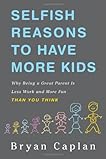
The End of College: Creating the Future of Learning and the University of Everywhere by Kevin Carey
My rating: 4 of 5 stars
This was not quite the book I thought it was going to be. It is focused on the history of higher education and not education policy or proposals. It tells the story of the particular circumstances that gave rise to the contemporary hybrid American university (one part research institute, one part liberal arts, one part practical education/training) and shows how those circumstances are changing (mostly due to technology). With these changing conditions, Carey argues, the hybrid model is starting to come a part. Technological advances are exposing the faults and cracks of higher ed and educational entrepreneurs are exploiting those opportunities. Eventually, a critical mass of new models will emerge and college as we know it will end.
What will the future look like? Carey's vision of of the University of Everywhere is aspirational and ideal. He's not offering a proposal or any detail. He sees a future where technology breaks up the hybrid universities. Technology will make what is a scarce resource, widely available and nearly free. What he calls your educational identity will be more under your control and direction (not housed on transcript somewhere in the ivory tower). Education won't be 4 years in one location: it will be lifelong and every where.
Using his experience taking an intro biology course online at MIT edX and interviews with different educational entrepreneurs, Carey presents the bits and pieces that are chipping away at the foundations of the ivory tower (the different ways people are offering online classes, using technology for education, and experimenting with alternative ways of credentialing). Each one of these pieces is exploiting a problem in the hybrid model and as they become more numerous and more successful, the hybrid model is breaking down.
I am glad Carey discusses the credential issue. That is the key to the breakdown of the hybrid model. Once employers and others can make use of credentialing systems that are as good as (even better than) a college diploma, the edifice of much of higher ed will come crashing down. As Carey notes, Harvard and MIT will be just fine. The state universities, community colleges, and small colleges (like Rockford U) that depend so much on (1) current tuition and (2) vast numbers of students whose primary aims are credentials for jobs not education will lose their market and their revenue. Though the disruption will be difficult and scary, and I don't know what will emerge, I think a higher ed system with more models and more competition will lead to a system that is more effective, more accessible, and more affordable. In this respect, I agree with Carey.
I am, though, much more skeptical about the technology; it is earlier than we think. It is hard to see how the intimate seminars of upper-level, advanced classes in most of the liberal arts and sciences can be taught online with the current level of technology. I think there is a lot that can be done and will eventually be done, but the dynamic, face-to-face chewing of ideas in a shared inquiry of a seminar is not (yet) replicable in discussion forums, chat rooms, or google hang outs. An Intro to Bio may work great -- as it seemed to for Carey at MIT edX, but what about a senior level seminar on the economics of Shakespeare's plays?
Though it wasn't what I expected, I learned a lot about the history of education and educational technology. Carey weaves in anecdotes into his history and interviews that make the book interesting and compelling.
View all my reviews








